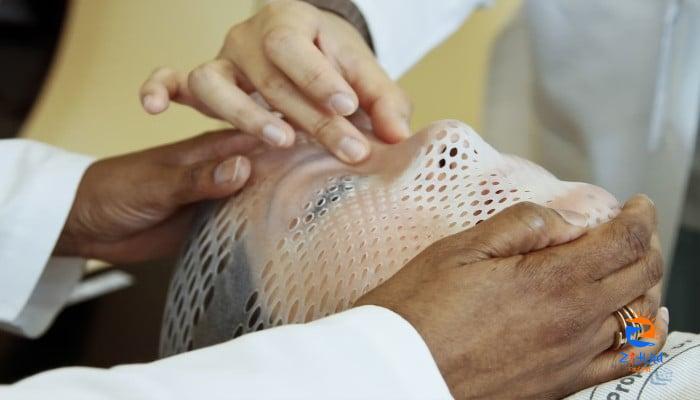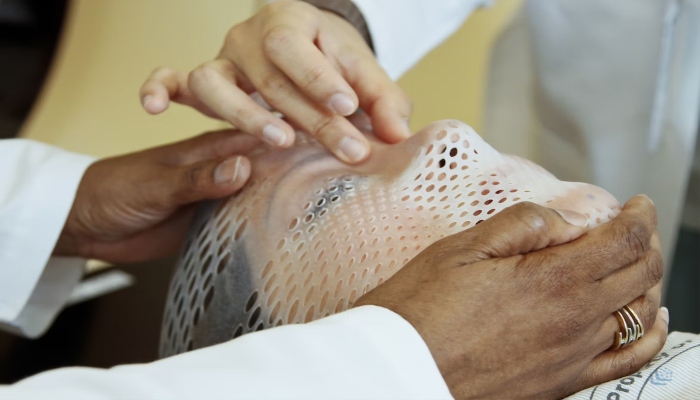
[ad_1]
Receiving treatment for a burn wound is not quite easy, nor is it as painless as it may seem. In fact, the healing process of a burn wound is the real challenge awaiting a burn victim. This is because of the frequency of dressing changes it requires, which can be extremely painful.
Recently, researchers at the University of Waterloo, Canada, developed a novel form of wound dressing material using cutting-edge polymers to solve this issue as well as others.
The novel bandage may speed up the recovery of burn victims and may also be used to deliver drugs for the treatment of cancer and for cosmetic purposes, News Medical reported.
“To treat burn victims, we can customise the shape using a 3D printer; secondly, the material has fine-tuned surface adhesion, which is a key feature”, said Dr Boxin Zhao, a professor in the university’s Department of Chemical Engineering and the leader of the research team.
Dr Zhao’s team has made substantial progress in creating intelligent hydrogel materials for use as washable wound dressings.
“The material can easily adhere to the skin and be taken off. It’s a very delicate balance within the material to make the adhesion work,” he added.
According to the study, the 3D scan of the patient’s face and body components allows the dressing to be tailored and individualised for burn victims and cancer treatment.
Additionally, the material can also be used to treat cancer, saving a patient from spending hours in a clinic. As a continuous medication release outside of the clinic environment, it helps eliminate problems with conventional techniques.
The research suggests that these intelligent dressings are made of cellulose nanocrystals, a thermally responsive polymer, and a biopolymer made from seaweed.
The dressing can warm up on the skin and gradually cool down to room temperature because of its thermal reactivity.
Furthermore, the dressing grows when cold in the refrigerator but contracts to a smaller size at body temperature, making removal simpler and less unpleasant. Also, the dressing is made to deliver time-release medication, enabling more extensive pain relief.
For Zhao’s Surface Science and Bio-Nanomaterials Laboratory Group, this study serves as proof of concept.
The next stage for Zhao’s research team is to keep enhancing the material’s attributes to make it more beneficial to human health and marketable.
[ad_2]
